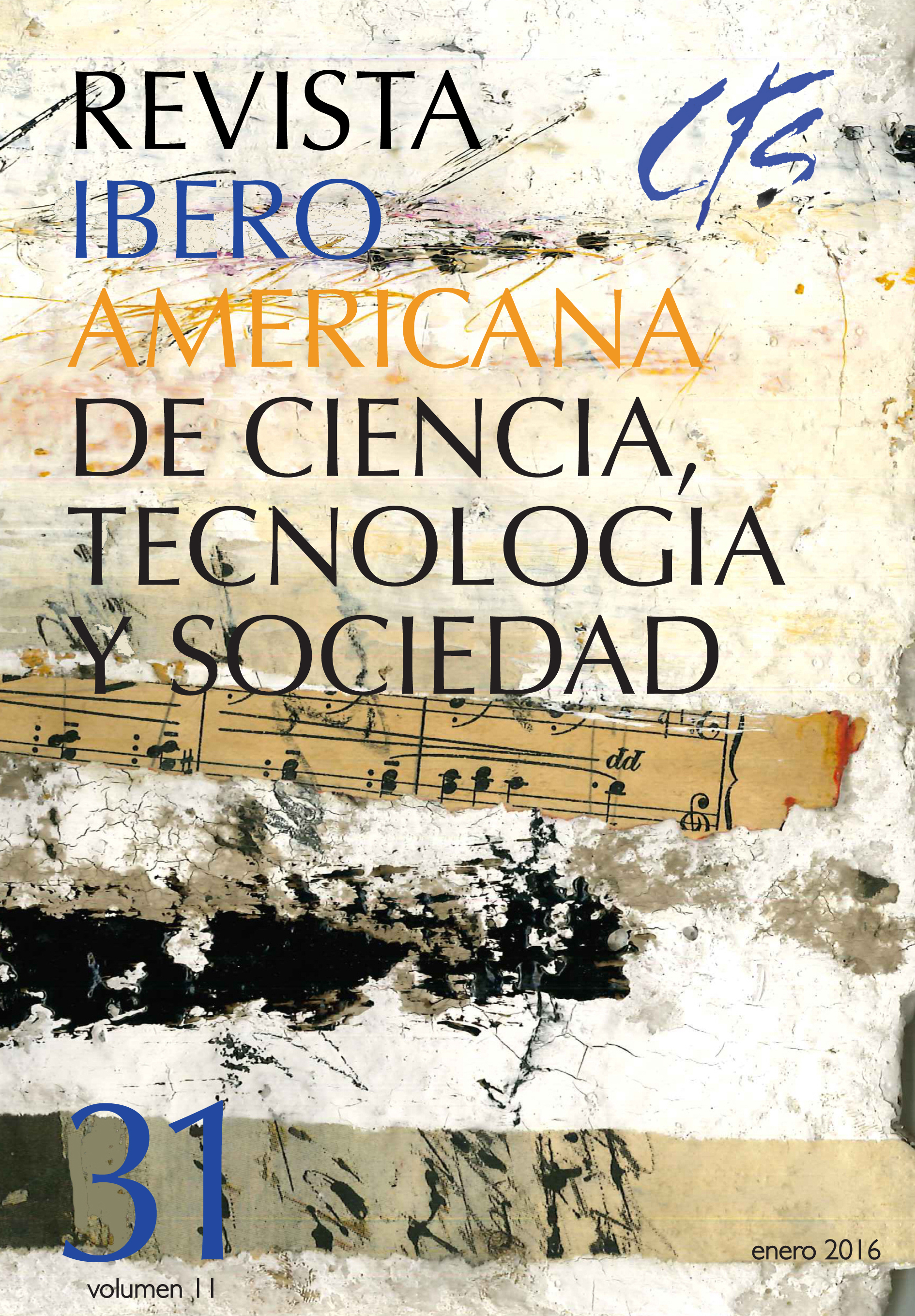Challenging The Institution Of Motherhood: Subversive Re-Appropriation Of Assisted Reproduction Technologies (ART)
DOI:
https://doi.org/10.52712/issn.1850-0013-486Keywords:
assisted reproduction technologies (ART), agency, motherhoods, feminismAbstract
This paper analyzes the role of Assisted Reproduction Technologies (ART) in the configuration of motherhoods subversive to the patriarchal systems and the institution of motherhood. The aim of this paper is to focus on the different strategies and obstacles women have to overcome when they intend to raise a single-mother family or with a lesbian partner, and to analyze to what extent the use of ART is subversive, or, on the contrary, reinforces the institution of motherhood and the patriarchal power. For that purpose, we have revised bibliography on the theme, and, through semi-structured interviews, have gathered a series of testimonies from women who have used ART. Thus, it has been possible to perceive the dialectical tension between gender scripts and oppressive patriarchal values as a constituent part of these techniques; and also women’s agency to create vivid motherhoods and new models capable of subverting the institution of motherhood.
Downloads
References
BEAUVOIR, Simone de (2000): El segundo sexo, Madrid, Catedra (orig. 1949).
BINETTI, María J. (2013): “La maternidad patriarcal: sobre la genealogía de la suprema alienación”, La Aljaba, vol. 17, pp. 113-128.
COVA, Anne (2005): “Où en est l’histoire de la maternité?”, Clio. Histoire‚ femmes et sociétés, nº 21, pp. 189-211.
FERNÁNDEZ-JIMENO, Natalia (2015): “The Bright and Dark Side of Assisted Reproductive Technology (ART)”, Feminist Spaces, vol. 1, nº 2, pp. 24-31.
GUAL, Ana M. (2011): Maternidad y técnicas de reproducción asistida: un análisis, desde la perspectiva de género de los conflictos y experiencias de las mujeres usuarias, Tesis Doctoral, Universitat Jaume I, Departament de Filosofia i Sociologia.
GUAL, Ana M. (2014): “Entre la tradición, la gestión del tiempo y la innovación: discursos sobre la maternidad de las mujeres usuarias de reproducción asistida”, en Eulalia Pérez Sedeño y Esther Ortega Arjonilla (eds.): Cartografías del cuerpo, Madrid, Cátedra, pp. 245-306.
IMAZ MARTÍNEZ, Miren E. (2007): Mujeres gestantes, madres en gestación. Representaciones, modelos y experiencias en el tránsito a la maternidad de las mujeres vascas contemporáneas, Tesis Doctoral, Universidad del País Vasco, Departamento de Filosofía de los Valores y Antropología Social.
IMAZ MARTÍNEZ, Miren E. (2014): “Maternidades lesbianas, nuevas formas familiares y derecho a elegir”, GRAFO working papers, vol. 3, nº 3, p. 6-17.
LEY 13/2005 (2005): Modificación del Código Civil en materia de derecho a contraer matrimonio. Disponible en: http://www.boe.es/boe/dias/2005/07/02/pdfs/A23632- 23634.pdf (última consulta: 17/11/2015).
LEY 14/2006 (2006): Sobre técnicas de reproducción humana asistida. Disponible en: https://www.boe.es/buscar/pdf/2006/BOE-A-2006-9292-consolidado.pdf (última consulta: 17/11/2015).
MINISTERIO DE SANIDAD Y SERVICIOS SOCIALES E IGUALDAD (2014): Orden SSI/2065/2014, de 31 de octubre, por la que se modifican los anexos I, II y III del Real Decreto 1030/2006, de 15 de septiembre, por el que se establece la cartera de servicios comunes del Sistema Nacional de Salud y el procedimiento para su actualización. BOE de 6 de Noviembre de 2014. Disponible en: https://www.boe.es/boe/dias/2014/11/06/pdfs/BOE-A-2014-11444.pdf (última consulta: 17/11/2015).
OIBERMAN, Alicia (2004) “Historia de las madres en occidente; repensar la maternidad”, Psicodebate, Psicología, Cultura y Sociedad, nº5, pp. 115-130.
PERUGA, Mónica B (s/f): “Madres, maternidad: nuevas miradas desde la historiografía”, en Gloria A.F. Rubio (ed.): Debates sobre la maternidad desde una perspectiva histórica (siglos XVI-XX), Barcelona, Icaria Editorial, pp. 81-82.
PULEO, Alicia (2004): “Perfiles filosóficos de la maternidad”, en Ángeles de la Concha y Raquel Osborne (coords.): Las mujeres y los niños primero: discursos de la maternidad, Barcelona, Icaria Editorial, pp. 23-42.
PUJANA, Irati F. (2014): Feminismo y maternidad: ¿una relación incómoda?, Vitoria- Gazteiz, Emakunde/ Instituto Vasco de la Mujer. Disponible en: http://www.emakunde.euskadi.eus/contenidos/informacion/certamen_publicaciones/e s_def/adjuntos/2013.feminismo.maternidad.relacion.incomoda.pdf (última consulta: 09/11/2015).
RICH, Adrienne (1996): Nacemos de mujer. La maternidad como experiencia e institución, Madrid, Cátedra (orig. 1976).
SALETTI CUESTA, Lorena (2008): “Propuestas teóricas feministas en relación al concepto de maternidad”, Clepsydra, nº 7, pp. 169-183.
SANZ GONZÁLEZ, Verónica (2011): Valores contextuales en ciencia y tecnología: el caso de las tecnologías de la computación, Tesis Doctoral, Universidad Complutense de Madrid, Servicio de Publicaciones.
SEDEÑO, Eulalia P. y SANCHEZ, Ana (2014): “Asimetrías y olvidos de las tecnologías de reproducción asistida”, en Eulalia Pérez Sedeño y Esther Ortega Arjonilla (eds.): Cartografías del cuerpo, Madrid, Cátedra, pp. 195-244.
TABOADA, Leonor (1986): La maternidad tecnológica: de la inseminación artificial a la fertilización in vitro, Barcelona, Icaria Editorial.
TANGUAY, Dominique (2013): “Recherches feministes”, Érudit, vol.26, nº1, p. 235- 239.
THOMPSON, Charis (2005): Making parents: the ontological choreography of reproductive technologies. Cambridge, MIT Press.
TUBERT, Silvia (1991): Mujeres sin sombra: maternidad y tecnología, Madrid, Siglo XXI.
VEREA, Cristina P. (2005): “Maternidad: Historia y cultura”, Revista de estudios de género. La Ventana, vol. 23, nº22, pp. 35-68.
WAJCMAN, Judy (2006): El Tecnofeminismo, Madrid, Cátedra (orig. 2004).
Downloads
Published
How to Cite
Issue
Section
License
Copyright (c) 2023 CC Attribution 4.0

This work is licensed under a Creative Commons Attribution 4.0 International License.
All CTS's issues and academic articles are under a CC-BY license.
Since 2007, CTS has provided open and free access to all its contents, including the complete archive of its quarterly edition and the different products presented in its electronic platform. This decision is based on the belief that offering free access to published materials helps to build a greater and better exchange of knowledge.
In turn, for the quarterly edition, CTS allows institutional and thematic repositories, as well as personal web pages, to self-archive articles in their post-print or editorial version, immediately after the publication of the final version of each issue and under the condition that a link to the original source will be incorporated into the self-archive.











